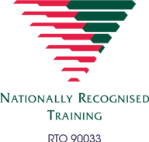Core unit components
- (FSKLRG011) Use routine strategies for work-related learning
Elective unit components
- (FSKOCM007) Interact effectively with others at work
- (FSKLRG009) Use strategies to respond to routine workplace problems
- (FSKRDG010) Read and respond to routine workplace information
- (FSKWTG009) Write routine workplace texts
- (FSKNUM015) Estimate, measure and calculate with routine metric measurements for work
- (FSKRDG008) Read and respond to information in routine visual and graphic texts
- (FSKWTG008) Complete routine workplace formatted texts
- (VU22380) Identify features of the education system
- (VU22403) Undertake a simple investigation of an environmental issue
- (FSKOCM005) Use oral communication skills for effective workplace presentations
- (FSKOCM006) Use oral communication skills to participate in workplace teams
- (FSKOCM004) Use oral communication skills to participate in workplace meetings
- (VU22381) Identify features of the healthcare system
Course Overview
Do you need to improve your English for work and study? Macquarie Community College is a leading provider of English teaching, offering you an inclusive and supportive environment in which to learn.
This English for Work and Study – Advanced course (FSK20119 Certificate II in Skills for Work and Vocational Pathways) will give you further training in learning strategies, workplace reading and writing, numeracy, oral communication and digital literacy. Join the class for a fun and interactive experience whilst learning key skills.
This course is designed for individuals who need further English foundation skills development to prepare for entry into the workforce entry or career training pathways.
It is suitable for individuals who require:
- A pathway to employment or career training
- Reading, writing, numeracy, oral communication and learning skills
- Entry level digital literacy and employability skills
- A career training and employment plan
Macquarie Community College operates from a range of venues across Northern and Western Sydney. We have campuses in Blacktown, Carlingford, Chatswood, Epping, Mt Druitt, Richmond, and Ryde. Enrol now!
What you will learn
Course outline
In this course, you will learn:
- Strategies to help you respond to routine workplace problems
- Strategies for work-related learning
- How to read and understand common workplace information
- How to write common workplace texts
- How to interact effectively with others at work
- How to use digital technology for everyday workplace tasks
- How to estimate measure and calculate with routine metric measurements for work
- How to use oral communication skills to participate in workplace meetings
- How to use oral communication skills for effective workplace presentations
- How to participate and contribute in workplace teams
- How to contribute to conduct investigations
- How to read and write formal workplace texts, creating routine visual and graphic texts
- Pronunciation
- Grammar
Course outcome
By the end of this course, the student will:
- Be fluent in English conversation and be able to interact effectively with others at work
- Be able to write common workplace texts
- Be more confident with their communication skills and be able to use it for effective workplace presentations
- Be able to estimate, interpret and calculate with whole numbers, familiar fractions, decimals and percentages in work-related situations
- Be able to measure and calculate common metric measurements used in the work place
- Be able to use digital technology for routine workplace tasks
- Have improved English grammar skills
- Have improved English pronunciation.
At the end of the course, you will be issued a certificate in FSK20119 Certificate II in Skills for Work and Vocational Pathways, where competency has been achieved. You will gain skills to participate in further study in preparation for employment.
What is involved
Time commitment
This course will include both classroom based sessions and home study.
Assessment
Assessment (including recognition of prior learning) must:
- Meet the requirements of the relevant training package or accredited course, and
- Be conducted in accordance with the principles of assessment and the rules of evidence, and
- Meet workplace and, where relevant, regulatory requirements.
For this course assessment will entail the following:
- Assessment methods include written and oral tasks, practical tasks and observation by the assessor. You will be informed when assessments are to take place.
What you need to know
Entry requirements
An appropriate level of language, literacy and numeracy (LLN) skills is required to enrol in this course. Macquarie Community College may conduct an LLN assessment as part of the pre enrolment process.
Continuing students should have completed English for Work and Study – Intermediate (FSK10219 Certificate I in Skills for Vocational Pathways).
What you need to provide
- All course material is provided and inclusive with course fees
- Notepad and pen
For remote learning online Zoom classes students will need a stable internet connection on computer or laptop to participate.
Fees and government subsidies
Smart and Skilled provides government-subsidised training and higher-level courses to help you get skills to find a job and advance your career.
If you're a prospective student, please visit: https://www.macquarie.nsw.edu.au/smart-and-skilled/ where you will find everything you need to know about the Smart and Skilled program before you enrol.
*Eligibility criteria apply. This training is subsidised by the NSW Government, and as a result your fee is determined through Training Services NSW formal eligibility criteria.
Students will need to supply the required evidence in accord with the requirements of Smart and Skilled eligibility.
Not eligible for Subsidised Training: $3,740
Contact us today or call on 1300 845 888 to check your eligibility.
What you can do next
Study pathway
After completing this English for Work and Study – Advanced course, you could enrol in Everyday English – Advanced or Advanced Plus or other nationally accredited courses at Certificate I or II and III level.


